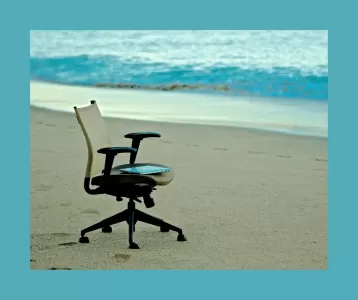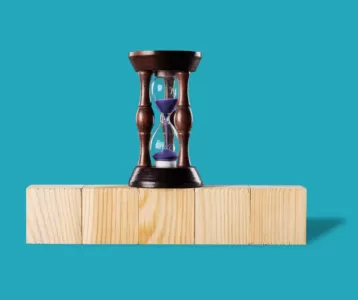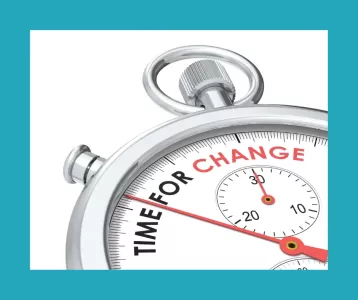Avoid Having Another Year Go by Without Action
My client, Carrie, a pseudonym, is the type to document her resolutions for the year, and unlike most of us, revisits them annually.
She engaged me as her coach after she realized “change jobs” had been on her list for at least four years. Carrie was disciplined about her work and her life and was perplexed about the lack of progress towards this specific goal.
This might sound familiar
Let me give you some background about Carrie. She started as an administrative assistant and worked her way up to third in the company. She knew the opportunity for any promotion was limited, if it existed at all, let alone how long she would need to wait if it did come around.
Why do you think someone as disciplined, and achievement-oriented as Carrie, could be stymied by something so important to her?
Let’s start with what she was doing right: she documents her resolutions and she revisits them regularly. For the items listed that she completed, I helped her realize they were items with familiar tasks and she knew the steps needed to succeed with each of them.
So, what was the sticking point with her “change jobs” resolution?
We can only do so much by ourselves
For those of you who have goals you aren’t achieving, the primary culprit is the person you rely upon for support – yourself!
For goals that take effort or discipline, relying on yourself is asking for trouble. We hold ourselves accountable enough to convince others that it works. The truth is, we all have blind spots and we also let ourselves off the hook often. For resolutions that have unfamiliar tasks, unknown steps, or have an emotional component, we can benefit by engaging someone else in our pursuit of them. I refer to this as accountability support; support that is geared to helping you achieve your goal. Accountability benefits you, too, when you clearly know your objective.
A piece of Carrie’s resolution had an imbedded challenge that she did not understand, and that was what was truly blocking her progress to “change jobs.” An imbedded challenge needs more than accountability support.
In general, people decide to change (anything) because they don’t like what they are doing. That is the common point of reference. What most don’t notice is that reason (e.g., I don’t like what I’m doing) does not describe a destination. It focuses on what and where they don’t want to stay. While this is helpful information, it is not enough to define a direction.
Change our thinking to change our results
Persisting with the perspective of ‘I don’t like what (or where) I am’ as the point of reference for finding a new job, we risk following the same logic we used to get our first job.
Think back to when we pursued our first job out of college. We looked for the best available fit for our degree, our salary objective, or what was posted on the Open Jobs listings. Many of us accepted jobs on the premise that by getting into the company we could climb from there.
This is what Carrie did. The tactic we relied upon for the first job was simply to get a job. We screened for jobs that closely fit our financial and industry parameters. We compromised when necessary. Finding the right fit was low on the priority list and if challenged, we might be hard pressed describing what the “right fit” meant.
Find the right route
This approach is the equivalent of being at a bus stop without knowing the specific destination of each bus arriving. You pick any bus. Once on the bus, you learn more about where it is headed. Eventually, you start to question if you want to stay on this bus.
Carrie was no longer wanting to stay on the bus because she was no longer enjoying the ride. She knew she wanted to get off, but she kept riding the bus another four years. Why?
To continue the metaphor, of course she knew there were other buses. However, she didn’t know where they were headed, where she needed to meet them, and mostly, she was worried she might actually need to go back to the original bus stop and start from the beginning.
This method for changing jobs is not helpful if your objective is to have a job, career, or life that you love. For most of us, the way we make decisions helps us accomplish goals, be successful in our jobs, and even enjoy our jobs. We have the skills needed to do the job, yet those same skills can be limiting when we wish to change what we are doing.
Uncover how to make progress
By working with me, Carrie built her plan to change jobs. The first step was to identify what she wanted in her next job. She not only identified the aspects of that job, such as the compensation, activities, responsibilities, authority, etc., she identified the amount of compensation, the type of activities, responsibilities, and authority that gave her pleasure.
To have a job you love, or life you love, uncovering what will make you most happy is so often discounted, given lower priority, and never explored. Many people have spent much of their career doing their job and ignoring their feelings about the job. If done long enough, you become a shell of who you are as you give more than you get.
Carrie was on that trajectory and changed it by doing the work to get these answers for herself. With those answers, she was able to pursue opportunities that would give her pleasure and contribute to her happiness.
Discover the way to a career and life you love
For those of you knowing you don’t want “Another Year to Go by Without Action,” you may be stuck by being your own support, or you have not defined what you want to accomplish in a way that is attractive and energizing for you.
I invite you to watch my complementary four-part video series, “How to Have a Job You Love,” for some tips on how to figure out what gives you pleasure and how to incorporate these in finding work that gives you the most fulfillment.
Time to make a Resolution List for this year.









